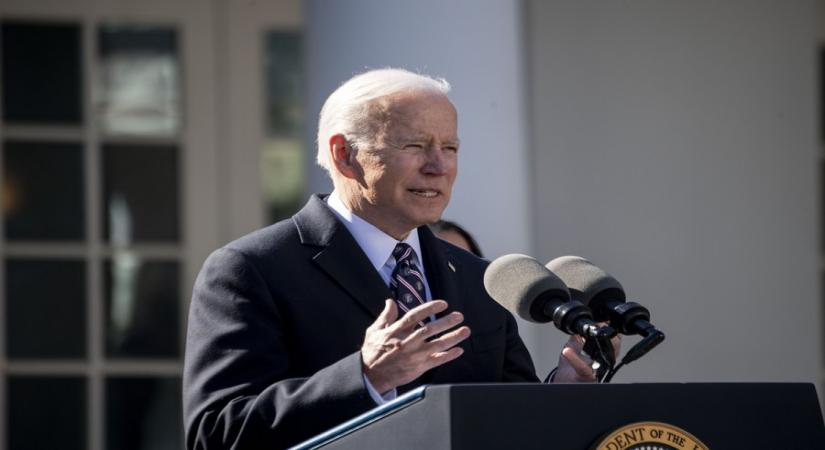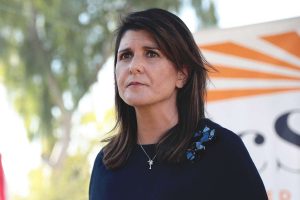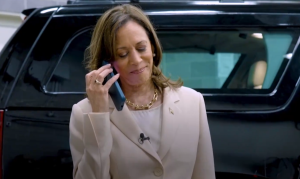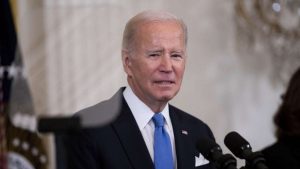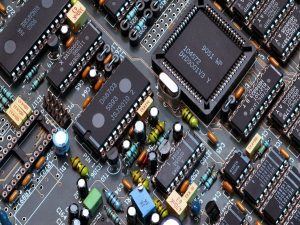The United States and Vietnam have increasingly close trade links, while both share concern over China’s growing strength in the region…reports Asian Lite News
President Joe Biden said Tuesday he would travel to Vietnam “shortly” as part of an effort to improve ties with Hanoi, as Washington seeks to counter China’s influence in the region.
“I’m going to be going to Vietnam shortly because Vietnam wants to change our relationship and become a partner,” Biden said during remarks in New Mexico.
“We find ourselves in a situation where all these changes around the world are taking place at a time we have an opportunity … to change the dynamic,” he added.
The United States and Vietnam have increasingly close trade links, while both share concern over China’s growing strength in the region.
Friction has been increasing for years between Beijing and Southeast Asian nations, particularly Vietnam and the Philippines, over China’s sweeping maritime claims in the South China Sea.
Washington and Hanoi pledged in April to upgrade diplomatic ties when US Secretary of State Antony Blinken stopped over on his way to a Group of Seven (G7) foreign ministers’ meeting in Japan.
“We think this is an auspicious time to elevate our existing partnership,” Blinken told reporters during the visit with Vietnamese leaders.
“We’ve had for the last 10 years this comprehensive partnership that has created an incredibly strong foundation of cooperation across many different areas. As a result, we think this is a good moment to go even further.”
Blinken also attended a ground-breaking opening for a new US embassy in Hanoi.
And in March, Biden spoke with the head of Vietnam’s ruling Communist party, Nguyen Phu Trong.
Washington has, however, bristled over human rights concerns in Vietnam, with Blinken saying he continued “to underscore how future progress on human rights is essential to unleashing the full potential of the Vietnamese people.”
The South China Sea, the longtime center of tensions between China and Vietnam, is seen as a powder keg, and many fear a miscalculation or accident could ignite a military conflict.
Analysts say Hanoi may be more reluctant to elevate relations with Washington, wary of upsetting Beijing — an important economic partner — despite rival claims in the South China Sea.
The United States has no territorial claim over the waters, but has persisted in conducting its own patrols there, angering Beijing.
Washington says this is to ensure what it terms “freedom of navigation” in the sea, through which trillions of dollars in trade passes annually.
The United States has also sought to improve relations with China in recent months, with Blinken visiting in June after a previous trip was canceled when an alleged Chinese spy balloon was shot down by a US warplane after traversing the country earlier this year.
Last month, Treasury Secretary Janet Yellen met with Vietnamese officials in a visit aimed at fortifying America’s relations across Asia. Yellen had arrived in Vietnam after visits to Beijing and to India, where she attended financial meetings of the Group of 20 major industrial economies.
“The United States considers Vietnam a key partner in advancing a free and open Indo-Pacific,” Yellen had told Vietnamese Prime Minister Pham Minh Chinh, according to remarks provided by the U.S. Treasury Department.
Yellen’s visit is part of concerted U.S. efforts to balance China’s growing influence in the Indo-Pacific. Earlier this year, Secretary of State Antony Blinken visited Vietnam weeks after the 50th anniversary of the U.S. troop withdrawal that marked the end of America’s direct military involvement in Vietnam. He pledged to boost relations to new levels.
Diplomatic relations between the two countries were only restored in 1995. Since then, bilateral trade has grown, reaching a high of $138 billion in goods trade last year.
China’s border is less than 60 miles (96 kilometers) from Hanoi and Vietnam, like many of China’s neighbors, has had maritime and territorial disputes with Beijing in the South China Sea. The two sides fought a brief war in 1979. But China is Vietnam’s biggest trading partner.
Yellen also met Thursday with the governor of Vietnam’s central bank, Nguyen Thi Hong, and announced a new economic policy dialogue between the State Bank of Vietnam and the U.S. Treasury Department.
She thanked Nguyen for the “close cooperation” between the U.S. and the State Bank of Vietnam to address American concerns over Vietnam’s currency practices. She added that the U.S. would remain supportive of Vietnam’s growth and that this would be beneficial for both Vietnamese and American people.
Vietnam has quickly become a major export production hub for global manufacturers like South Korea’s LG and Samsung Electronics, suppliers to Apple, Inc. and auto makers like Honda and Toyota.
